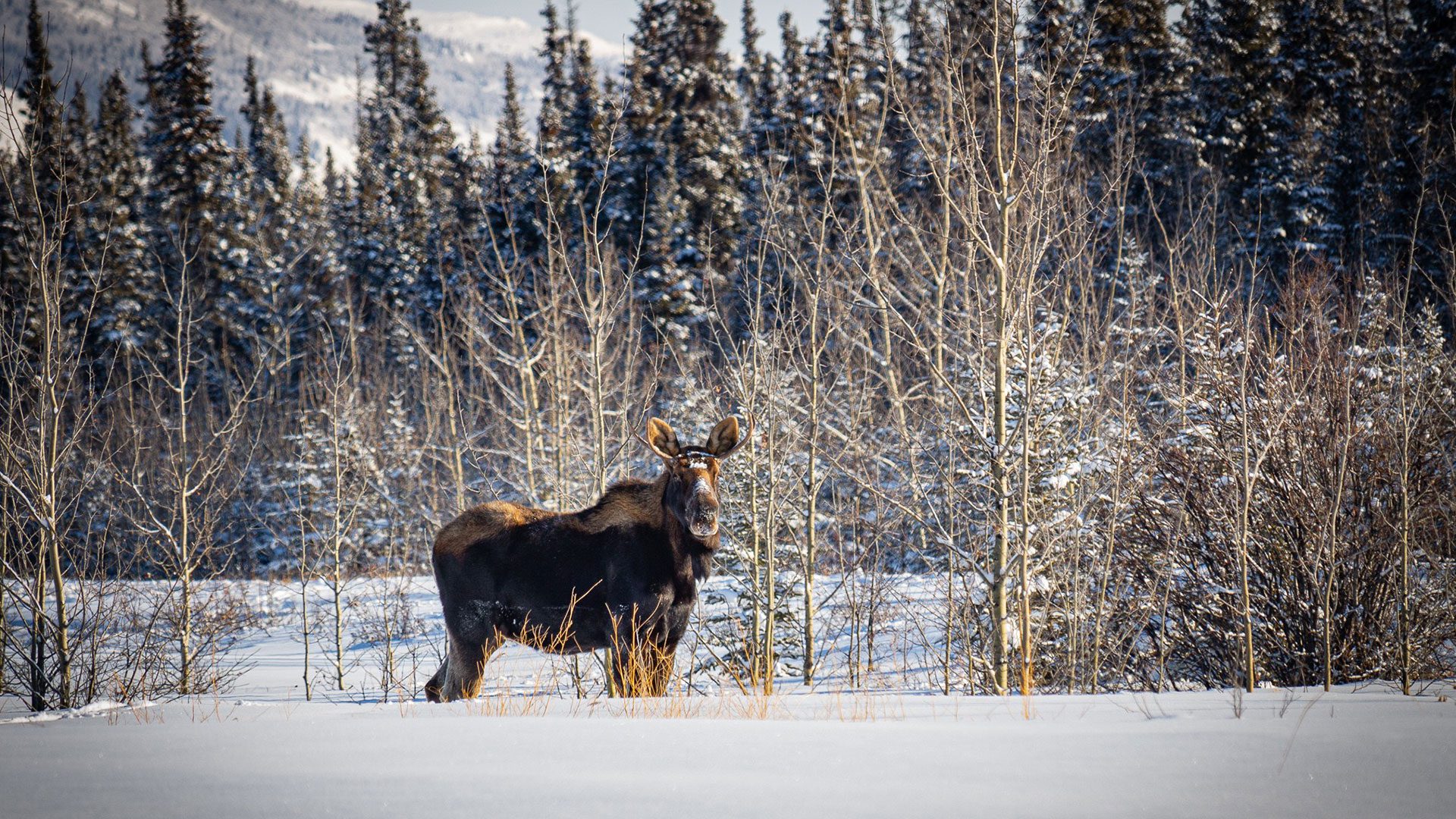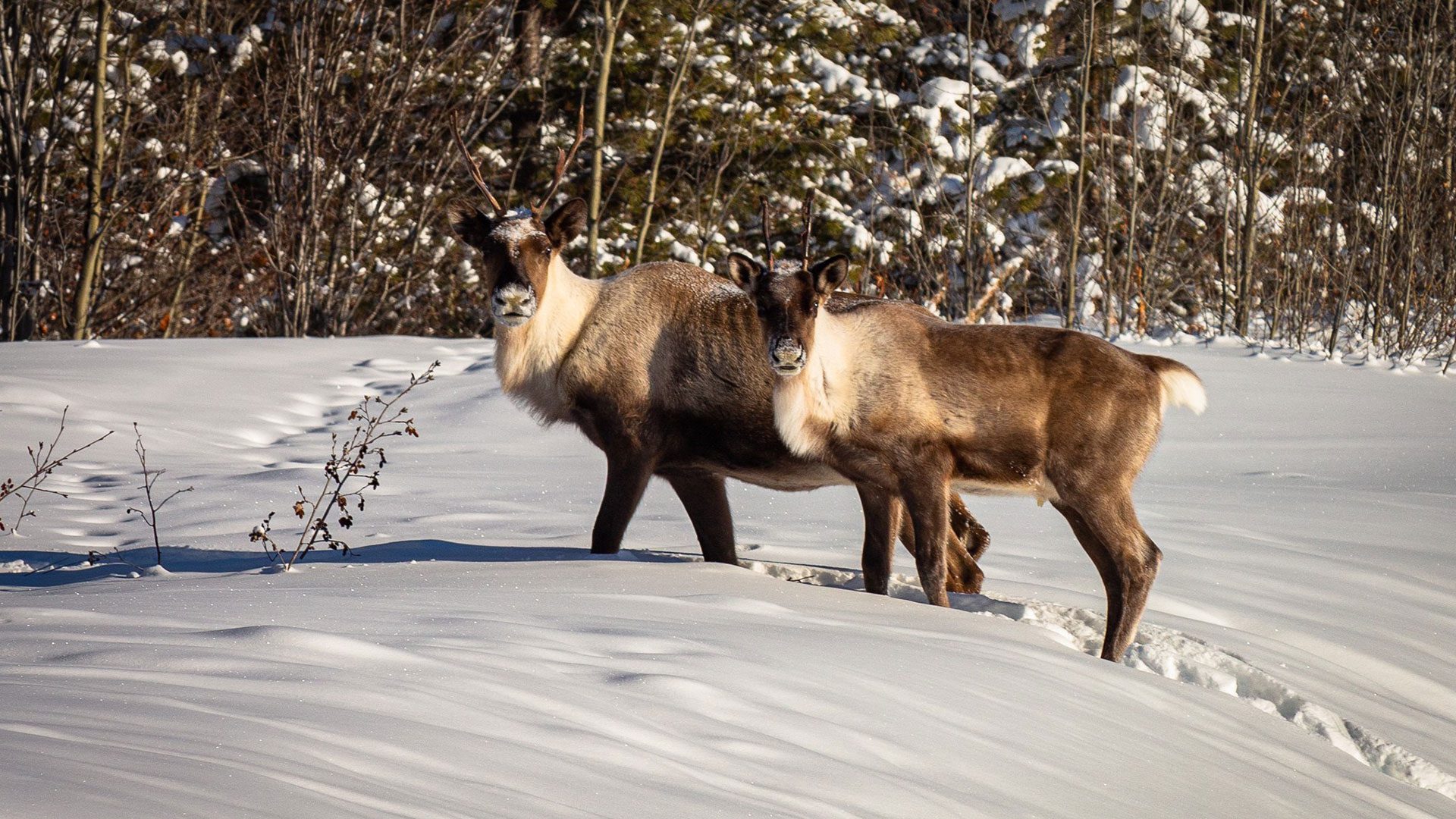A Kaska chief in the Yukon doesn’t agree with the territorial government’s response to his nation’s self-imposed hunting rules.
Chief Jack Caesar of the Ross River Dena Council (RRDC) says his First Nation has an inherent right to manage hunting in its asserted traditional territory, despite the Yukon government stating otherwise.
“We still have our inherent rights to the whole land base that we all go by. An inherent right, you know?” he tells APTN News.”
“We got the laws of the land that are totally respected.”
RRDC is one of two Kaska First Nations in southeastern Yukon, the other being Liard First Nation (LFN).
Raised concerns
Both communities have raised concerns in recent years about over-hunting in their territories.
Caesar says there are six non-Indigenous outfitters operating in RRDC territory alone attracting people from all over the world to hunt caribou and moose. He says trophy hunters are hurting the supply.
“Caribou, we tell them to hold back – don’t take bull caribous – and they just take them,” he says. “Trophy-wise, they’ll get them, after the rutting season when their meat’s no good to eat during that time.
“But they get them anyways for trophy’s sake.”
Caesar says his people subsist on what they harvest, and the situation is getting dire.

A moose near Haines Junction, Yukon. Photo: Jordan Haslbeck, APTN News
“It’s something we rely on and the disappearance of them…I find that we’re going to be in trouble and there’s going to be nothing to pass onto the next generation,” he says.
“That’s how bad it is; I say next generation.”
In 2018, RRDC made it mandatory for non-Kaska hunters to obtain a hunting permit from the First Nation.
Liard went one step further on Aug. 6, posting an ad in a local newspaper declaring “a partial ban on non-Kaska hunters who are not local.”
But a few days later the Yukon government declared the First Nations’ mandates unenforceable.
Traditional territory
Nils Clarke, minister of the environment, released a statement saying “licensed hunters do not require permission to hunt on non-settlement lands in any traditional territory.”
Clarke added he was committed to working with First Nations and Inuvialuit to address wildlife management concerns.
Eleven of the Yukon’s 14 First Nations have signed a land claim agreement as part of the Umbrella Final Agreement, and are categorized as self-governing. They require written permission from hunters to access their lands.
But RRDC and LFN have not signed agreements, and are technically still governed by the Indian Act.
Due to this, the Yukon government does not legally recognize the two First Nations’ assertion of hunting rights. Under the Wildlife Act, licensed hunters do not have to obtain permission to hunt on non-settlement lands.

Caribou near Watson Lake, Yukon. Photo: Jason Haslbeck, APTN News
The ongoing conflict has led to court battles in the past.
In 2016, RRDC asked the Supreme Court of Canada to declare the Yukon government had to consult with the First Nation before issuing hunting licences. It also asked for a declaration that the issuance of such licences could adversely impact its rights.
However, that same year, the court ruled against issuing the declarations as it found both parties agreed on the adverse effects, as well as the fact Environment Yukon was already consulting with the First Nation.
In 2019, RRDC appealed the decision and asked for two new declarations – one on consultation, and another stating the territorial government failed to consult with the First Nation for the past three hunting seasons.
In 2020, the Yukon Court of Appeal dismissed the appeal in a unanimous decision, stating RRDC does not have established Aboriginal rights and title to the land, among other things.
Kaska’s concerns
Gordon Hitchcock, chief conservation officer for the Yukon, says the department of environment understands the Kaska’s concerns, however “the idea is to maintain that opportunity for licensed hunting as well as respecting the right for subsistence harvest.
“As it stands right now, the Kaska have an asserted right to a subsistence harvest in their traditional territory,” Hitchcock says. “As well, the licensed hunters have access to public lands, non-settlement lands, for the purpose of hunting that is governed by the Wildlife Act and regulations.
“That’s how the land and framework looks right now. So, a licensed hunter right now, if they’re operating under an authority of the Wildlife Act and a licence, cannot be excluded by public lands, and that is where the issue is.”
He notes the government is committed to working towards mitigating the Kaska’s concerns.
“If there’s an area of concern that comes to us from the Kaska members, a certain area, and they suggest there might be some hunting pressure,” he says, “we have the ability to shift our resources and put some monitoring resources and efforts into that area to verify, and if there is hunting pressure then we can engage in trying to resolve that conflict.”
Kaska territory
Government data shared with APTN shows an average of 100 caribou, 282 moose and 29 sheep have been harvested between 2015-2019 in Kaska territory. Those numbers do not include subsistence harvests by the RRDC and LFN.
Catherine Pinard, wildlife harvest negotiator for the territorial government, says there are hunting pressures in some areas of the Yukon.
She notes the department is working hard to manage licensed hunting in a sustainable way by conducting management practises like aerial surveys and other population studies.
“If hunting pressure increases to the point where we have concerns, or if we see that there is a decline for whatever reason, we monitor even more closely and have different management tools to restrict licensed harvest and eventually (but rarely) all harvest if there is a major conservation issue,” she says in an emailed statement.
However, she adds, it’s best practice to respect a First Nation’s wishes if they declare a hunting ban.
“It’s not an obligation but it’s respectful,” she says.
Been complying
Caesar says hunters have been complying with his First Nation’s wishes and picking up permits from its office.
But he’s still concerned.
“It’s changing, I guess you could say, at a rapid pace there,” he says. “It’s a concern of what’s being taken out of the land base and it’s not good.”
Caesar says the only way the Yukon government could truly address his First Nation’s concerns is if it settles its land claim – something it’s not willing to do at this time.
Caesar says he wants to meet with the Yukon government along with other Kaska First Nations in B.C. to see if they can work together to find alternative solutions.
“I think they should have all the Kaskas and the government sitting at one table to make all these decisions, not (for the government) to ignore them and make their own,” he says.
APTN reached out to Clarke’s office to see if he would be open to such a meeting.
He said in an emailed statement: “We have reached out to RRDC and look forward to meeting to discuss these important issues. Our government is committed to working with our First Nation and Inuvialuit partners to find a path forward that reflects our mutual commitment to fish and wildlife conservation and management.”
LFN did not responded to APTN’s request for an interview.









